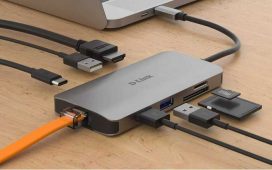Businesses are struggling with numerous connected issues. Good office space is expensive, the UK’s transport infrastructure is poor, and work-life balance is becoming a key issue for employees. So the prospect of remote working is becoming increasingly popular. So much so in fact, that the Office of National Statistics predicts that 50% of UK employees will be working remotely in 2020.

There are huge potential benefits but switching to working from home isn’t without its risks. It’s a potentially daunting move for companies of any size – particularly those in the highly collaborative field of game development. Thankfully, there are industry
success stories for you to learn from.
Roll7 decided to make the switch five years ago now. In May 2015, the OlliOlli developer closed the doors of its premises for the very last time and went remote.
After seven years of operating from a physical office, the team saw it as a solution to a number of issues they’d been facing: from employee motivation to the constant delays and unpleasantness of commuting at rush-hour.
To get an understanding of what motivated the process – And how Roll7 has adapted to remote work, we sat down with Simon Bennett, Co-CEO of Roll7.
“Back in 2015,” says Bennett, “we heard a lot of people expressing disbelief at the thought of a fully remote office being able to function as efficiently as one based in a physical location, let alone better. Of course, there were some immediately obvious benefits – we would save over £250,000 a year on rent alone – but was this really the right choice in the long run?”
Roll7’s uncertainty wasn’t entirely misplaced. The concept of remote work is often treated with suspicion, for three main reasons.
Firstly, as any staff writer with occasional ‘work from home’ days can tell you, the motivation to work can rapidly decline when there’s no manager on hand to keep you from drowning in cat videos for eight hours a day. On top of that, there’s the possibility that a lack of close interaction could undermine team work. With these considered, there’s a real worry of remote work undermining the quality of work.
“Going remote is probably the single best thing we’ve ever done for the health of the studio and our workforce”
Secondly, there’s a concern around attracting new talent – Do people want to work from home? Enough that it won’t negatively impact the hiring process?
And finally, will publishers and investors understand the new direction the company is going in? Will remote working make it more challenging to secure investment?
“In truth, these were all things that we were initially concerned about ourselves” admits Bennett. “But, over the last five years, with a bit of trial-and-error and a lot of thought, we’ve reached a place where we can comfortably answer all of those concerns. Five years on, going remote is probably the single best thing we’ve ever done for the health of the studio and our workforce.”
QUALITY OF WORK
Since going remote in 2015, Roll7 have released two critically acclaimed and award winning games (Not A Hero and Laser League), so it certainly seems clear that remote working hasn’t undermined their ability to work as a team. How was this achieved, without a physical office environment enabling an easy flow of communication and co-worker interactions?
“There are several reasons,” notes Bennett. “The main change from a project management and delivery perspective was at director level, and us reacting to a new requirement to be hyper-focused on clarity and quality of communication – ensuring that the vision of the projects we are working on are articulated very clearly, and that people are always aware what they are working on. This marked a departure from some of our earlier project management methodologies that were more ad-hoc and chaotic, due in part to the ability to just grab everyone into a meeting, or miscommunication based on chats misconstrued as new workload. Our production methodology now is streamlined and far clearer, as a result, output and morale is through the
roof – which ultimately results in better games.
“Working from home means that there are less distractions than one might find in the typical office environment, and more scope for employees to tailor their workspace to their own personal requirements.
At Roll7, people are able to work in total silence or listen to loud music, turn the heating up or down whenever they want, and eat as much stilton and garlic as they like without fear of retribution from furious co-workers! Combined with a recently implemented flexible hours policy our team has the ultimate flexibility to take a longer lunch if they want to, or go pick up their kids from school. It really has made a huge difference to quality of life and staff happiness, which ultimately affects the quality of work people are delivering.
“Working remotely also means that the focus is on actual tangible output, not just on turning up and sitting at a desk from 9 to 5:30 while zoning out and not actually getting anything done. People tend to turn in better work, in our experience, when they’re focused more on great results than on looking like they’re working. Trusting our employees to get on with things on their own terms has proved to be extremely motivating – people have a real sense that they own the work they produce, and have a sense of pride in being able to turn in great content and contribute to the games we make in a meaningful way. This focus on output, not hours, has enabled us to eliminate crunch; we work smarter, not harder, and a motivated workforce who truly care about what they’re making means that we’re more likely to be ahead of the requirements for a milestone than behind.”
Of course, there are positive aspects to a real-world office space that can’t be denied. People need time and space to interact, and while Roll7 keeps in touch via Slack and Zoom calls, as well as a regular online gaming sessions, there’s no complete replacement for face-to-face conversation when it comes to building a team.
This is something Roll7 agrees with – holding fortnightly in-person meetings at the Ukie offices in London, where they have a couple of remote desks. While the timing of these meetings are occasionally affected during development (they were moved to monthly meetings during the development of Laser League), Bennett maintains the importance of these regular interactions.
“Especially in the early stages of projects,” notes Bennett, “it’s crucial to have that time together more often. Between these in-person meetings and our robust online communication system, we’ve managed to create a thriving office culture without the need to spend every day physically in the same building.”
ATTRACTING TALENT

It’s also undeniable that remote work simply isn’t for everyone – some people’s work styles are simply better suited to an office. But for everyone who is turned away by the prospect of remote work, there’s yet more who
are attracted by it.
“We’ve found that being a chiefly online workplace seems to attract a larger and more diverse pool of applicants,” says Bennett. “In general, remote work tends to allow for a more varied range of working styles.”
There’s a number of benefits to remote work for employees, beyond the obvious ones of saving time and money avoiding a daily commute. Flexible working hours also open the door to people who are simply unable to work in a conventional office – parents are better able to juggle work and childcare. Additionally, not having to commute every day opens up the hiring process to people with physical or mental disabilities that may limit their ability to travel daily.
Of course, an online-focused workspace also allows Roll7 to take a more global view when it comes to hiring, as Bennett explains.
“We can hire people from a much wider physical radius than would be possible if people were having to commute into the office every day. This means we get a larger and more diverse pool of applicants to choose from, and more access to talent outside the immediate London area. It means that we can hire the best – not just in the immediate area, but in the country and even beyond that – and because our employees work with us online, not in-person, they don’t have to worry about any upcoming changes to their rights to work in the UK.
“Equally, we also see a lot of applications from industry veterans who are tired of crunch culture and the drudgery of commuting and want a job that gives them a bit of a change of pace and work in a more refined way.”
And the pool of potential new employees did grow immensely once the company had gone remote.
“When we hired a lead programmer for OlliOlli2,” says Bennett, “we received 13 applications for the role to come and work at our Deptford studio. The same advert in 2019 garnered 120 responses, and we are seeing a similar uplift across all disciplines as we scale up from 20 to 50 in 2020, which against the backdrop of a tougher hiring market in the UK and EU is a real strength.”
INVESTOR TRUST
Since Roll7 had started with a more traditional office, they naturally benefited from existing relationships with publishers and investors when they decided to go with a remote set-up, making it easier to maintain that level of trust.
However, even without that bedrock of existing relationships, in a world where all our relationships – not just business ones – are moving more and more into the cloud, it seems likely that remote work is going to become even more common in the coming years.
“Since starting working at Roll7 I have developed a new relationship with my daughter”
“Many publishers and investors who we’ve spoken with have been based far enough away that our interactions with them have taken place primarily online or by phone, with some infrequent in-person meetings” notes Bennett.
“It’s therefore not a huge jump for many investors to understand how we can operate securely, efficiently, and remotely – after all, that’s exactly how we communicate with them. Saying that, we have had to ramp up on our security protocols – including some bespoke ones – for people working remotely, but these are not too dissimilar to those in an office environment.”
So remote work has certainly been a successful business decision for Roll7 – but as discussed, the benefits of stepping away from a centralised office aren’t entirely business-related. There’s a real human impact that comes with more flexible working conditions, so what has this change meant for the team at Roll7? Bennett recounts the experience of Paul Abbott, their lead artist, and what he’d said during a Roll7 meetup.
“Since starting working at Roll7 I have developed a new relationship with my daughter. I walk her to school just before work, and pick her up. I now know who her friend Maisie is, and why she is struggling in maths. We have this fantastic new bond. I only wish I had been able to do the same with my son.”













